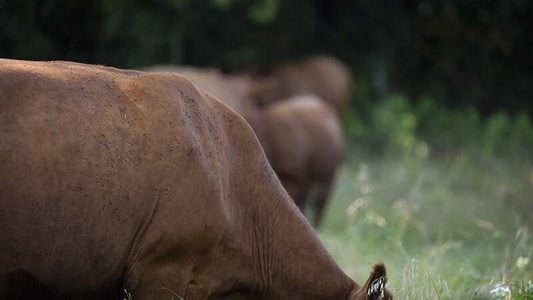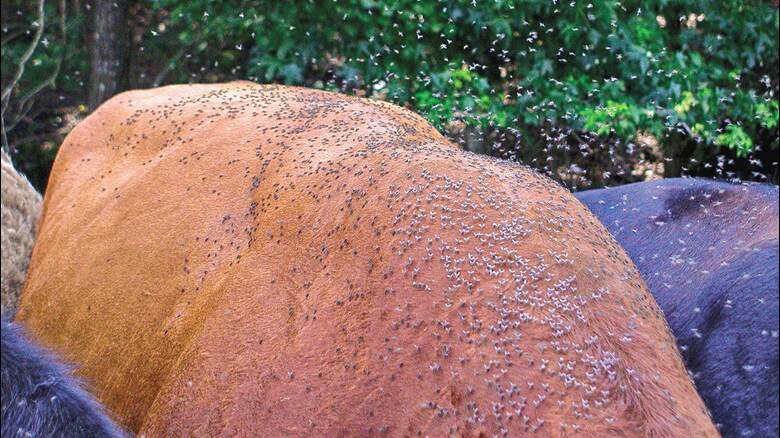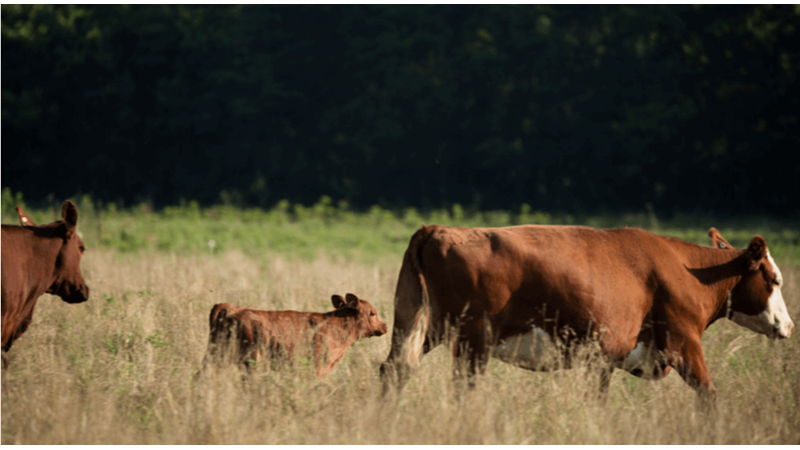
Fly management programs for beef operations are necessary to keep pests from impacting a herd and profits. An effective integrated pest management (IPM) program can prevent beef heifer milk quality and production from deteriorating. Untreated pest populations, especially horn flies, directly translate into lower calf weaning weights and a decreased bottom line for your operation.
How do horn flies affect cattle?
Horn flies are small biting flies that feed on the blood of animals with their piercing mouthparts, taking up to 40 blood meals a day. Horn flies feed on the blood vessels in the skin of the teat, spreading mastitis bacteria while they feed. If left untreated, the bacteria can migrate from the scab left from the fly bites, moving into the quarter and destroying milk producing tissues.
How does mastitis affect milk production?
Blind quarters in a mature heifer's udder can hinder milk production by as much as 20%. A study by Dr. Stephen Nickerson with the University of Georgia found intramammary infections in nearly 75% of mammary quarters, confirming the high potential for blind quarters to develop. Additionally, horn flies affect milk quality by inflicting stress on cattle, potentially resulting in lower amounts of butter fat and protein in milk.
How important is milk production for calves?
Milk production accounts for 60% of calf weaning weight differences. Given the impact on weaning weight from mastitis-induced blind quarters, operation profitability can be significantly influenced by horn fly damage. With cattle weight loss from horn flies reaching as high as 50 pounds per animal, the cost can reach as high as $45 per head in a season. The economic losses from horn flies alone cost the North American cattle industry over $1 billion per year.
How can I stop horn flies?
Proactive horn fly control starts with an insect growth regulator. Altosid® IGR is a feed-through fly control solution that passes through the digestive system and works in cattle manure where horn flies lay their eggs, limiting future fly populations from emerging. Altosid® IGR, partnered with an effective IPM program, will protect your herd and your profits from horn fly damage.



